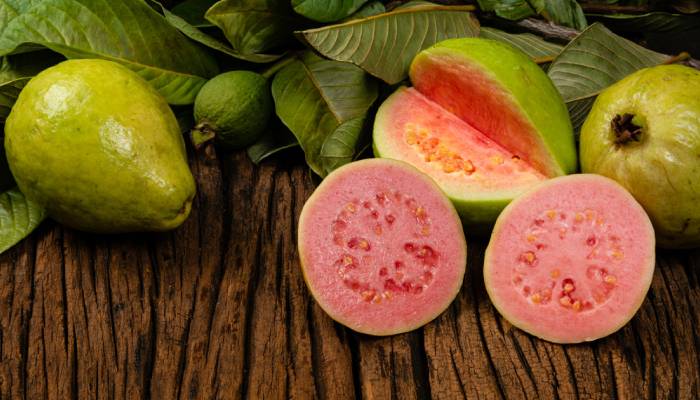
Vitamin C is extremely important for maintaining good health!
It plays a key role in keeping skin, bones, teeth and gums healthy and also boosts the immune system, helps the body absorb iron and aids in wound healing.
Vitamin C is also crucial for skin health as it aids in collagen synthesis and protects the skin from sun damage and premature aging, keeping skin firm and elastic.
To ensure adequate intake of vitamin C, you can use supplements, with a recommended daily dose of 75 mg for women and 90 mg for men.
However, it's best to get vitamin C from a balanced diet rich in fruits and vegetables, which also provide other beneficial nutrients.
Guava:

This tropical fruit offers about 228 mg of vitamin C per 100 grams and is rich in antioxidants, anti-inflammatory, antiviral, and antibacterial properties.
Bell peppers:

Specifically, bell peppers that are easily available in any supermarket have 80.4mg of vitamin C per 100g, while lemons only have 53mg per 100g.
Oranges:

Oranges provide about 75 mg of vitamin C each, and other citrus fruits like grapefruit also offer significant amounts. Fresh juices are great, but should be consumed immediately to prevent oxidation.
Broccoli:

This vegetable offers about 89 mg of vitamin C per ounce. It can be enjoyed raw in salads or steamed with olive oil and lemon.
What is the best time to take vitamin C?
There is no specific best time to take a vitamin C supplement, but if it causes stomach irritation, it’s better to take it along with your meal.
As per Today, the body can only absorb a certain amount of vitamin C at a time and if you take too much at once, the excess will be removed through urine.
To make the most of the absorption, it’s recommended to split the daily dose, taking half part in the morning and half in the evening.















